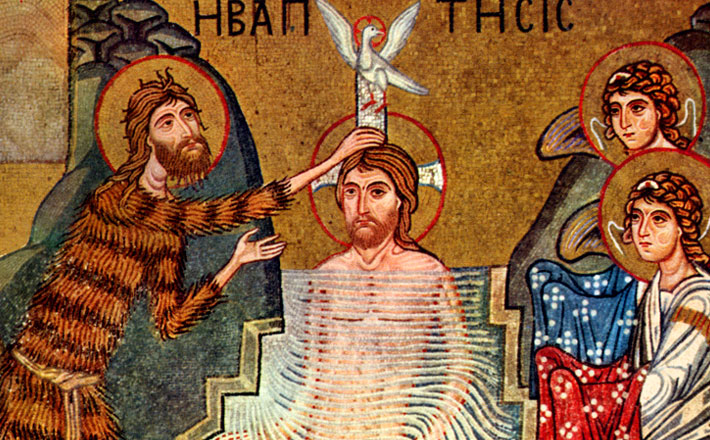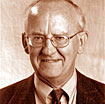Commentary on Psalm 29
A storm scene from our home on Woman Lake in northern Minnesota:
As I write these lines, looking out across the lake, I notice that the wind is coming up in the northwest. Soon there will be rain, and then the storm. The storms always come from that direction and the pattern is the same. First there is an eerie calm. The western sky darkens and then turns black. The storm begins to move closer, with flashes of lightning and the rolling of thunder in the distance. The wind picks up, and quickly there are whitecaps on the lake. That’s my cue to drop the canvas shades over the windows on the screen porch. Last summer there was a flash of lightning, a clap of thunder, and a major branch on a tall white pine near our cabin broke off and crashed to the ground with a tremendous thud.
Each time I watch a storm gathering, the words of a hymn come to mind:
O Lord my God, when I in awesome wonder
Consider all the worlds thy hands have made,
I see the stars, I hear the rolling thunder,
Thy power throughout the universe displayed;
Then sings my soul, my Savior God to thee;
How great thou art! How great thou art!
(The United Methodist Hymnal, 77)1
And I often think about the storm described in Psalm 29.
Bravo, God, Bravo! (Psalm 29:1-2)
A storm scene from Psalm 29:
The Message translation catches the spirit of the psalm. It imagines all the heavenly creatures cheering as God thunders across the waters:
Bravo, God, Bravo!
Gods and all angels shout, “Encore!”
Step by step the chorus of cheers becomes more intense; in the NRSV translation:
“Ascribe to the Lord, O heavenly beings,
ascribe to the Lord glory and strength.
Ascribe to the Lord the glory of his name;
worship the Lord in holy splendor. (vv. 1-2)
The psalm follows the typical pattern of a hymn of praise: calls to praise in the imperative mood (Psalm 29:1-2) introduce a section giving reasons for praising the Lord (vv.3-11; see Psalm 113 for an example of the structure of the hymn of praise).
The “heavenly beings” called to praise are those supernatural creatures who surround the Lord’s throne; we might call them “angels.” The Bible assumes the presence of these creatures; Psalm 82:1 calls them “gods”:
God has taken his place in the divine council;
in the midst of the gods he holds judgment:
And Psalm 148:1-2 names them “angels”:
Praise the LORD!
Praise the LORD from the heavens;
Praise him in the heights!
Praise him, all his angels …
“Glory” (Hebrew, kabod) is an important word in Psalm 29 (1, 2, 9). The basic sense ofthe word is “heaviness, abundance.” A cloud may be described as “thick” (kabod) with rain (Exodus 19:16) or one may speak of a “heavy (kabod) hail” (Exodus 9:24). The word may be used to designate a magnificent kind of luxury, like the splendor (kabod)of the great banquet given by King Ahasuerus (Esther 1:4; read 1:5-9 and 5:11). Toward the end of the psalm all living creatures are directed to shout “Glory!” (kabod,Psalm 29:9).
The Storm (Psalm 29:3-9)
The call to praisein the imperative mood is now followed by reasons for praise in Psalm 29:3-9. In this case the reasons for praise have to do with the might of the LORD as revealed in a storm. The description enables one to imagine the storm developing in the west, coming across the Mediterranean, then striking land in the territory of Lebanon, including Mt. Hermon (Sirion), and finally moving on toward Jerusalem.
The sound of the storm must have been awesome (Psalm 29:4) and is described as the “voice of the LORD,” fearsome in its effects (vv. 5-9). There is more thunder, then a sharp crack, followed by a thud as a cedar branch hits the ground (v. 5). The word “voice” (Hebrew qol) occurs seven times, perhaps suggesting totality.
The storm makes landfall. The mighty cedars of Lebanon (still the symbol on today’s Lebanese flag) are snapped like so many match sticks (Psalm 29:5). The land shakes and quakes (v. 6). Lightning strikes, and the forests catch fire (v. 7a). Those in the temple shout a word of praise, “Glory!” (v. 9).
Psalm 29 ends with a picture of the calm after the storm. The forests are burned over, recalling television shots of the devastation of forests in Colorado or California. But finally, everything seems to be back in order. The LORD is in control, enthroned as King in heaven blessing the people with shalom (vv. 10-11).
God in Nature (Genesis 1:1-5)
While the Bible often speaks about the mighty acts of God in history (Deuteronomy 26; Psalms 105, 106), in Psalm 29 the focus is on the mighty acts of God in nature. The mood is somewhat eerie, with no human beings on the scene until one hears the word of praise, “Glory” from the congregation gathered in the temple (v. 9). One is reminded of the eeriness on the first day of creation when the earth is “formless and void” (tohu va vohu) before God begins to speak and create (Genesis 1:1-5).
The Baptism of Jesus (Mark 1:4-11)
This is the Sunday observing the baptism of Jesus. Once again, we hear about a voice from heaven; in fact, Mark allows us to hear what the voice says. This time there is no rolling thunder or flashing lightning, though the heavens are “torn apart.” This time the voice (Greek, phone) from heaven is the voice of the heavenly Father addressing Jesus as a beloved Son, affirming him as he begins his mission.
Notes:
1 1953, renewed 1981 Manna Music Inc. Nashville: The United Methodist Publishing House, 1989.


January 11, 2015